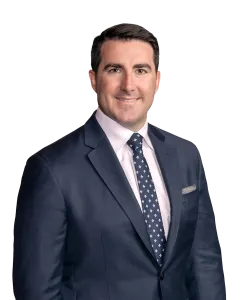DOJ’s 2020 False Claims Act Recoveries Lowest Since 2008
Headlines that Matter for Companies and Executives in Regulated Industries
Litigation Developments
DOJ’s 2020 False Claims Act Recoveries Lowest Since 2008
On January 14, 2021, the Department of Justice (DOJ) announced that it obtained more than $2.2 billion in settlements and judgments from civil cases involving fraud and false claims during the fiscal year ending September 30, 2020. Over $1.8 billion of the recoveries related to matters involving the health care industry. The DOJ further noted that the annual figure does not include millions of dollars in additional funds secured for state Medicaid programs.
According to the DOJ press release, whistleblowers filed 672 qui tam suits in 2020. In the last year, the DOJ recovered over $1.6 billion as a result of these and earlier-filed qui tam suits.
The recently released statistics show that the recoveries were down approximately $900 million from fiscal year 2019 and were considerably lower than the high collections of $6.15 billion in 2014. Although the lower figure may be attributable to court closures related to the global pandemic, the statistics reveal that FCA recoveries under the Trump administration averaged approximately $2.912 billion while the DOJ averaged $3.879 billion each year between 2009 and 2016. The new administration is expected to return to previous levels of FCA investigations and enforcement.
Read the DOJ’s Press Release here.
Former Acclarent Inc. Executives Avoid Prison Time in Off-Label Marketing Case
Last week, a US District Court Judge for the District of Massachusetts sentenced two former Acclarent, Inc. executives for misdemeanors related to the company’s off-label marketing of a medical device. During the seven-week trial, the government argued that the executives’ marketing of a device for drug delivery constituted selling a misbranded and adulterated product under the federal Food, Drug, and Cosmetic Act. The jury, however, acquitted the defendants of the felony fraud charges and instead convicted them of ten counts of introducing a misbranded and adulterated device into interstate commerce. The former executives subsequently filed a motion for acquittal, which the judge considered for more than four years before finally denying it in September 2020.
At the sentencing hearings, the judge explained that prison was not a necessary punishment for the crimes and sentenced the former chief executive to pay the maximum fine of $1 million and the former marketing head to pay $500,000. The judge noted that this was “a financial crime and a crime of greed” and explained that she found the case to be very difficult. She also commented that the former marketing head, who was convicted of taking shortcuts with the U.S. Food and Drug Administration, did not disregard the agency and made efforts to comply with regulations that she called “problematic or murky.”
The case is U.S. v. Facteaus et al., case number 1:15-cr-10076, in the US District Court for the District of Massachusetts.
Additional details can be found here.
Texas Man Indicted for COVID-Relief Fraud
A Texas man was indicted last week on two counts of wire fraud in connection with two bank loan applications seeking over $5 million in forgivable loans guaranteed by the Small Business Administration (SBA) under the Coronavirus Aid, Relief, and Economic Security (CARES) Act.
According to the government, the defendant allegedly made fraudulent applications to two different lenders for loans through the Paycheck Protection Program (“PPP”), one source of relief provided by the CARES Act. In one application, the defendant claimed to employ 412 people with an average monthly payroll of more than $2 million, and in another application, he claimed to have 145 employees. In both applications, the defendant submitted what he purported to be an IRS Form 941 and the names of the supposed employees. In reality, however, the indictment alleges that the defendant found the names included his application from a random name generator on the internet.
To obtain a PPP loan, a business must submit a PPP loan application stating, among other items, its average monthly payroll expenses and number of employees. According to court filings, these figures are used to calculate the amount of money a small business is eligible to receive under the program. The government claims the defendant’s scheme caused intended losses of at least $5.7 million and seeks criminal forfeiture of the $533,216 that was allegedly wired to an account controlled by the defendant.
The DOJ’s press release includes a link to the federal criminal indictment, which is merely an accusation.
Former Government Contractor Sentenced to 70 Months for Bribery and Kickbacks
A former government contractor was sentenced to 70 months in prison followed by three years of supervised release for his part in a bribery and kickback scheme to secure US Army contracts.
The defendant admitted that he paid over $100,000 in bribes to two US Army contracting officials between 2011 and 2018. The bribes, which included cash, automobiles, and firearms, were made to help the defendant’s employer, a government contractor, secure over $19 million in US Army contracts. The defendant also admitted that he accepted over $720,000 in kickbacks from a local subcontractor in return for assigning those contracts to that local subcontractor. According to the government, the defendant even arranged for one of the officials to get a job at his employer after the official retired from the Department of Defense Civil Service. That official previously pled guilty to receiving bribes, and another official has been charged with receiving bribes.
Read the DOJ’s press release for additional details.
Contacts
- Related Industries
- Related Practices






